Providers want homeless people prioritized for vaccination
By JULIE MINDA
When the coronavirus began its rapid spread about a year ago, public health agencies quickly recognized how dangerous it would be if the virus were to infect people in crowded encampments and homeless shelters, putting this highly vulnerable population — and the broader community — at great risk.
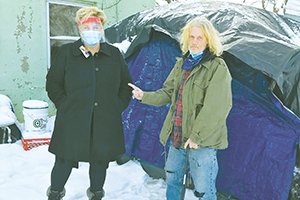
Karen Otto, a member of the Mount Carmel Health System Street Medicine team, meets with a man experiencing homelessness in Columbus, Ohio.
The public health threat and humanitarian concerns spurred federal, state and local government agencies and homeless services organizations and their partners including members of the Catholic health ministry to undertake a massive effort to mitigate the risk. Together, coalition members supplied the funding and resources needed to depopulate homeless shelters by offering temporary housing such as hotel rooms, and otherwise tending to the health and socioeconomic needs of people without permanent housing.
The coordination between public and private efforts kept things moving with urgency. For example, the Sisters of Charity Foundation of Cleveland contributed to the Greater Cleveland COVID-19 Rapid Response Fund, a collective pool of philanthropic dollars that supported de-concentration of emergency homeless shelters until federal dollars began flowing for this purpose.

D'Orazio
Similar coordinated efforts in communities across the U.S. brought marked success. The U.S. Interagency Council on Homelessness reports the incidence of COVID-19 cases and deaths among people experiencing homelessness has been significantly and dramatically lower than had been originally projected. Angela D'Orazio, senior program officer for the homelessness focus area for Sisters of Charity Foundation of Cleveland, says this has been the case in Cleveland, where "because of our shelter de-concentration efforts, we have been able to maintain shelter census at or below 53% and have seen a less than 8% positivity rate in our shelters."
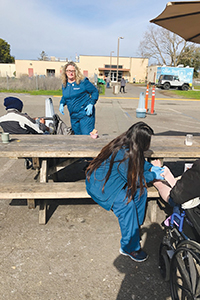
Juanita Gonsalves wraps the foot of a resident at the Sam Jones Homeless Shelter. Jessica Quintal tends to another patient. Gonsalves and Quintal are medical assistants with the Providence St. Joseph Health – Sonoma County mobile health clinic in California. The clinic has been meeting medical needs of homeless people throughout the pandemic.
The coalitions now are focused on ensuring that people who are homeless are prioritized for vaccination. Last month the Biden administration said it planned to ship vaccine directly to federally qualified health centers, whose patients include homeless individuals.
Building on success
"It has been an unprecedented collaboration of homeless services providers," says D'Orazio.
"It's been tremendous — there's been enormous support and recognition of the needs of people who are experiencing homelessness," says Jaime Dircksen, vice president, Community Health & Well-Being at Trinity Health.
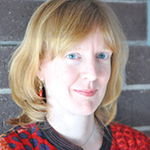
DiPietro
"The whole idea now is: Can we leave homeless services in a better place than we found them?" says Barbara DiPietro, senior director of policy for the National Health Care for the Homeless Council, a CHA advocacy partner that represents federally qualified health centers focused on serving homeless populations.
"In virtually every major community around the United States, there was a sea change in how homeless services were delivered," DiPietro says. Public-private partnerships mobilized to depopulate homeless shelters to allow for social distancing. In most cases service providers identified underused space — often rooms in hotels and motels left vacant by the COVID-19 lockdown — to function either as medical respite housing for people with COVID-19 or as an alternative to homeless shelters or encampments for individuals in high-risk groups, usually frail elders and chronically ill people.
Many of the coalitions organized corps of health care and social service providers to tend to the needs of the temporarily resettled people as well as to people in shelters and encampments.
Vaccine equity
DiPietro says some states, but not all, specifically mention homeless populations in their vaccination plans. There is wide variance in how state protocols are written and interpreted and implemented. In general, though, vaccine distribution sites must operate within the parameters of the state's priority tiering.

Employees of the Centers for Disease Control and Prevention partnered with Atlanta's Mercy Care to provide COVID testing to staff and residents of homeless shelters. This April 2020 testing is at Gateway Center, an Atlanta homeless shelter for men.
In many communities, vaccine appointments are extremely hard to secure. Homeless services providers are trying to figure out how to make sure that homeless people who qualify for a priority slot based on age or health status can get a vaccine.
Especially given the variance in how governmental bodies at every level are carrying out vaccination efforts and prioritizing people, homeless populations may be overlooked, says DiPietro. Also, many states are focused on mass vaccinations at large venues, such as stadiums, or drive-thru clinics. Homeless people may be unable to travel to those venues or may feel uncomfortable going there.
Trinity Health's Dircksen says other hurdles include the logistical challenge of administering two doses, weeks apart, to homeless individuals who may be transient or else unwilling or unable to supply contact information.
Finding a way
Despite logistical challenges, some homeless services providers in the ministry have been able to begin vaccinating or supporting the vaccination of people who are homeless. For instance, Joseph's Home, which is a Sisters of Charity Health System-sponsored medical respite for people who are homeless, was partnering with others to vaccinate its eligible clients earlier this month and track them to ensure they are able to receive a second dose.
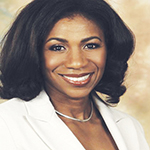
Woods
E. Gaye Woods, system director of community benefit at SCL Health, says that system is coordinating with its community partners, including those that work with people who are homeless, to include vulnerable populations in mass vaccination events.
SCL Health helped to provide transportation to a February mass vaccination for vulnerable community members. And it is strategizing with homeless service providers to get the vaccine to homeless people where they congregate, most likely using mobile clinics.
Woods says that often people who are housing insecure will frequent particular locations for food and shelter on a regular basis. SCL Health will provide vaccinations at some of those sites. "We are excited to be able to meet people where they are," she says.
Vaccine hesitancy is a hurdle to mass vaccination of homeless populations, Woods says. People of color make up a disproportionate percentage of homeless populations, and they also are among the most distrustful of the COVID vaccines. "That's why we have to put in the time to grow people's trust," says Woods.
Trinity Health recently announced it will spend $1.6 million to build trust in COVID vaccines and get the shots to high risk and medically underserved populations. It planned to spend $500,000 of the sum on a radio and social media campaign to launch this month. The social media campaign will use influencers who represent the culture and ethnicity of the community. The campaign will raise awareness of how and where to be vaccinated. Trinity Health plans to offer vaccination in accessible locations, particularly places that are convenient to the elderly, the unsheltered and people living in rural areas.
Some of the funding will be used to transport vulnerable people — including homeless people — to vaccination events.
As Catholic Health World went to press in early March, Trinity Health sponsored street medicine and medical programs for the
homeless — Pittsburgh Mercy's Operation Safety Net and Mercy Care in Atlanta — planned to do vaccine outreach to individual patients as state priority stratification made them eligible for inoculation.
Uncertainty ahead
DiPietro says homeless services providers may not have a great grasp of the true extent of homelessness in their communities, since homelessness point-in-time counts have been delayed due to the virus. Also, the number of homeless people could increase dramatically if current eviction moratoriums end.
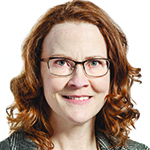
Graham
Beth Graham is executive director of Joseph's Home. She anticipates there will be an ongoing need for trauma-informed mental health care since homeless people have been enduring the dual trauma of the pandemic and homelessness.
Graham says while many people may speak of a return to normal, in her view, "getting back to normal is not acceptable for people experiencing homelessness. We don't want to go back to how things were."
Graham's colleague D'Orazio asks rhetorically, "How do we capitalize on our newfound ability to think differently about homeless services? How do we sustain this in the future? How do we quickly help people in housing crisis and minimize their trauma? And how do we get them back to their own home, which is where it's best for them?"
Ministry tends to health, social service needs of homeless people
Catholic health care systems and facilities — and in some cases their social service ministries — have dialed up their direct outreach to people who are homeless.
Street outreach teams fielded by Trinity Health and emergency department staff use the health system's social services hotline to identify and refer homeless individuals in need of food, housing or transportation to social service agencies, some of which receive financial support from Trinity Health.
Trinity Health's Mercy Care staff in Atlanta are among Trinity Health clinicians and social service staff rounding at homeless shelters and encampments to educate people on virus precautions, distribute hand sanitizer and complete basic health and COVID screenings and testing. Mercy Care provides ambulatory care at its clinics and via telehealth with a focus on patients who are homeless.
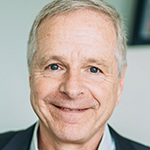
Andrews
Mercy Care collects prepackaged items including granola bars, fruit cups and tuna pouches and packs them into individual meal kits. Staff hand out the kits at Mercy Care clinics and at homeless shelters and encampments, says Tom Andrews, chief executive of Atlanta's Saint Joseph Health System, parent company of Mercy Care. He says with the pandemic, the need for meal kits escalated to thousands a month due to usual food sources no longer being available.
The Sisters of Charity Foundation of Cleveland and Joseph's Home, both affiliates of the Sisters of Charity Health System, are deploying and/or supporting volunteers — many of whom once had been homeless — to educate the unhoused about COVID, taking advantage of a foundation of trust and credibility.
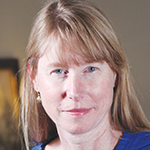
Eid-Ammons
Sonoma County, California, has one of the state's largest homeless populations, when counted per capita, according to Jennifer Eid-Ammons. She is the manager of Providence St. Joseph Health — Sonoma County's mobile health clinic, which cares for the community's poor and vulnerable, including many homeless immigrants who lack legal immigration status. When clinics shut down in-person visits at the start of the pandemic, Providence's mobile clinic was the only health care access many homeless people had.
Eid-Ammons says the mobile clinic's services were especially appreciated by the many undocumented immigrants who are homeless.
— JULIE MINDA